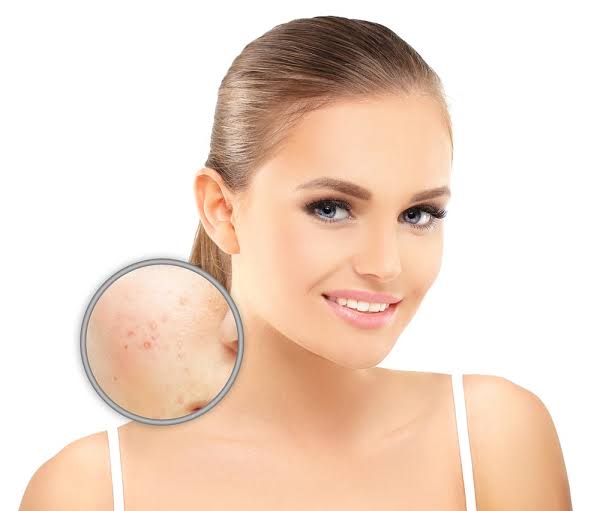
How to Reduce Skin Pigmentation?
Ranging from topical products and medical procedures to natural remedies, understanding the various treatment options to reduce skin pigmentation.
Skin pigmentation, also known as hyperpigmentation, causes some areas of the skin to darken. It can appear as black, grey, brown, red, or pink spots or patches, commonly referred to as age spots, liver spots, or sun spots. While often harmless and requiring no treatment, some may choose to remove it. Various treatment methods and home remedies are available to help reduce skin pigmentation. Read on to learn more.
How is Skin Pigmentation Treated?
Skin pigmentation can be reduced with the help of over-the-counter topical products, medical treatments, and home remedies. Let’s explore each option in detail.
1. Topical Products
Many people use topical creams or ointments to treat skin pigmentation. These treatments include skin-lightening ingredients, such as:
- Cysteamine cream
- Azelaic acid
- Vitamin C
- Corticosteroids
- Hydroquinone
- Kojic acid
- Arbutin
- Retinoids like tretinoin
- Glycolic acid
- Niacinamide
- Mequinol
- Soy
- N-acetyl glucosamine
While over-the-counter topical products, like a glycolic acid cream or a hydroquinone ointment, can help reduce pigmentation, it’s advisable to always consult a doctor before using them.
2. Medical Treatments
Certain clinical procedures can lighten skin areas to reduce pigmentation. Cosmetic treatments for skin pigmentation include:
- Laser Therapy: This method uses targeted light beams to address skin pigmentation. There are two kinds of lasers: ablative and non-ablative. Notably, ablative lasers are more intense and remove skin layers, while non-ablative lasers target the dermis to stimulate collagen growth and tightening. Ablative lasers can be more effective but may have more side effects. Both methods aim to destroy specific skin elements, promoting the growth of tighter, more toned skin.
- Intense Pulsed Light (IPL): IPL therapy, a type of non-ablative laser treatment, also known as a photofacial, stimulates collagen growth in the dermis. This treatment usually requires multiple sessions and is effective for overall pigmentation issues, particularly flat spots. IPL can also help reduce wrinkles, spider veins, and enlarged pores.
- Chemical Peels: These treatments use strong acids to target hyperpigmentation by removing the skin’s top layer (epidermis). More intense peels can penetrate the middle skin layer (dermis) for more significant results.
- Microdermabrasion: It is an in-office procedure that treats superficial scarring by removing the epidermis with a handheld tool featuring a wire brush or other abrasive attachments. This process is quick and gentle.
Anyone considering these procedures should consult with a skincare specialist or dermatologist to discuss the process and potential side effects.
3. Home Remedies
Natural remedies may also help lighten hyperpigmented areas. Some effective options include:
- Aloe Vera: Aloesin, a compound in aloe vera, may reduce hyperpigmentation by inhibiting melanin production. Apply aloe vera gel directly from the plant to your skin daily.
- Apple Cider Vinegar: Containing acetic acid, apple cider vinegar can lighten pigmentation. Mix equal parts of apple cider vinegar and water, apply it to dark patches, leave it for 2-3 minutes, then rinse with lukewarm water. Repeat twice daily until you achieve the desired results.
- Liquorice: Liquorice extract contains ingredients that lighten hyperpigmentation caused by melasma and sun exposure. Over-the-counter creams with liquorice extract can be used as directed.
- Milk: Milk, sour milk, and buttermilk contain lactic acid, which effectively lightens skin discolouration. Soak a cotton ball in milk and apply it to dark patches twice daily until you see results.
Before trying a new treatment or remedy, always test it on a small skin patch first and discontinue use if irritation occurs.
Can You Prevent Skin Pigmentation?
While preventing skin pigmentation entirely is not always possible, there are ways to reduce the risk and keep it from becoming more prominent:
- Use sunscreen with SPF 30 or higher and wear protective clothing to shield your skin from the sun.
- Refrain from picking at spots, acne, or scabs to prevent dark patches from forming.
- Consult a professional before using creams to lighten dark patches, as some products can cause adverse reactions.
- Refrain from using products designed to lighten your overall complexion, as they can harm your skin.
All in all, managing and reducing skin pigmentation involves a combination of preventive measures, topical treatments, medical procedures, and natural remedies. Hyperpigmentation can be effectively addressed with options ranging from over-the-counter creams to advanced clinical treatments like laser therapy and chemical peels. Home remedies, such as aloe vera and apple cider vinegar, can also offer accessible and gentle alternatives. With careful consideration and the right approach, achieving a more even skin tone is possible.
